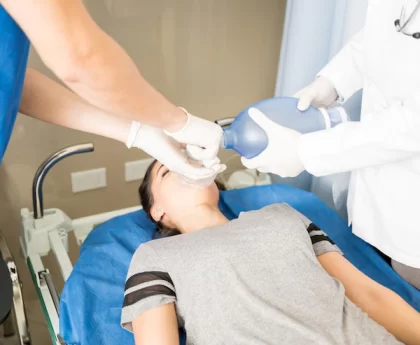Adenomyosis is a reproductive health issue that affects around 1/3rd of child-bearing females in the United States of America. When it occurs in a female of reproductive age, it causes heavy, painful, and lengthy periods. Further, it makes a woman have painful sexual intercourse and pelvic pain. It makes a female’s uterus enlarge, which might lead her to infertility.
As per the best IVF doctor of a fertility clinic in India, a female with adenomyosis has abnormal endometrial tissue, which grows inside the uterus wall and builds the uterine lining. As a result, the female has an enlarged uterus, which is double or triple a normal one. Heavy periods caused by adenomyosis can make you (females) have anaemia.
How adenomyosis affects your fertility
According to many recent studies, adenomyosis catches a female with other conditions like uterine polyps, endometriosis, and fibroids. When it occurs, it could distort the fallopian tubes and interfere with the receptiveness of the uterine lining, and implantation. If you conceive while having adenomyosis, you have a higher risk of miscarriages, and preterm birth. So, you must consult your doctor to treat it before you plan to conceive a child.
Causes and risks
Usually, adenomyosis happens to females older than 35. The growth of the endometrial wall basically depends on oestrogen. To date, doctors do not know what exactly causes adenomyosis. However, they believe that the following causes may be behind the occurrence of adenomyosis in females:
- Uterine inflammation after the delivery of a child triggers a break in the uterus lining and makes cells invade
- Invasive tissue development
- The buildup of the futures in the foetus might cause improper endometrial tissue placement
- Prior uterine surgery
- Ageing, especially being over 25
- Childbirth
Adenomyosis diagnosis
Adenomyosis is diagnosed when a female complains of irregular periods, intense pain, repeated miscarriages, or conception issues. If you suspect having it, your doctor will recommend or perform the following tests/screenings:
- Pelvic examination – After palpating, your doctor can notice your enlarged uterus
- Biopsy – In severe cases, doctors use it to detect adenomyosis
- MRI scan – To detect the uterus enlargement
- Transvaginal ultrasound – To see the thickening of your uterus’ muscular wall with the use of sound waves
Treatment
Based on your test reports, your doctor will decide which treatment is better for you. The ideal treatment is IVF. However, the doctor can recommend Lupron (GnRH agonists) or a gestational carrier.
How to deal with adenomyosis while treating it
After the detection of adenomyosis, you need to be kind enough to yourself to manage the associated symptoms. You should instantly look for medical treatment. To ease your treatment and fertility, you can ask one of your family members, friends, or relatives to be with you.
Also Read: Covid-19 Test – What You Should Know





